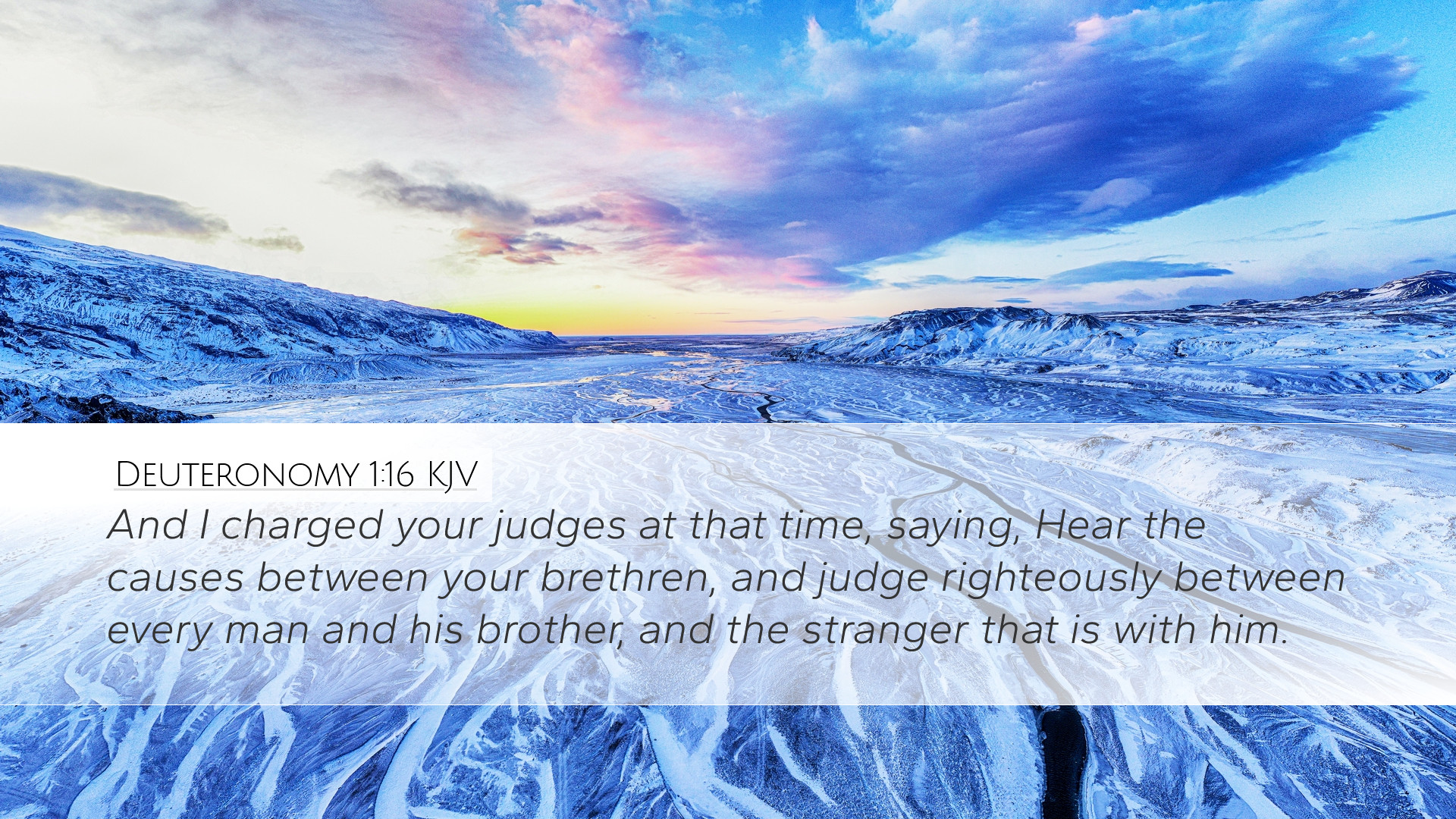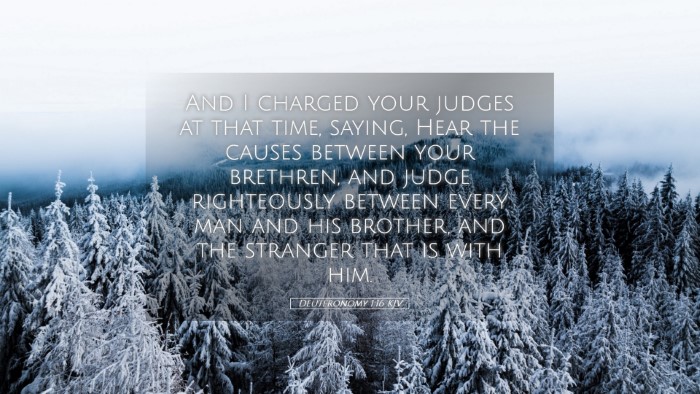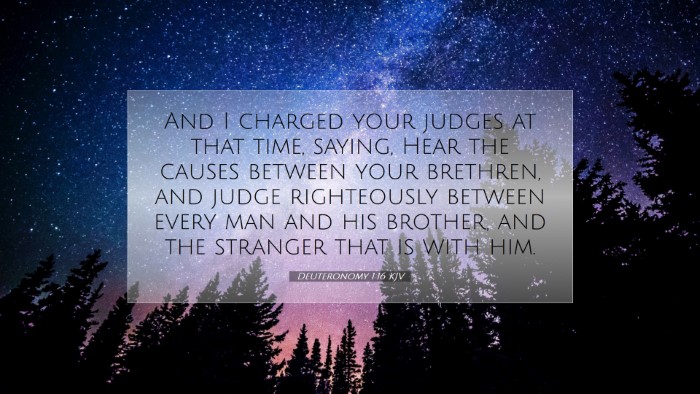Commentary on Deuteronomy 1:16
Deuteronomy 1:16 states:
“And I charged your judges at that time, saying, Hear the causes between your brethren, and judge righteously between every man and his brother, and the stranger that is with him.”
This verse falls within the context of Moses' address to the Israelites, where he recalls the events after their exodus from Egypt and the importance of justice and righteousness in their community. Below is a comprehensive commentary derived from various public domain commentaries that provide insights into the theological and practical implications of this pivotal instruction.
1. The Context of Judgment
According to Matthew Henry, Moses highlights a crucial aspect of leadership—the role of judges within the community. It is imperative that judges are instructed to hear all cases fairly and without prejudice. This reminds leaders that their authority is not merely to rule but to serve justice among the people.
2. The Call for Righteous Judgment
Albert Barnes emphasizes the mandate for judges to "judge righteously." This sovereignty extends beyond mere rule; it calls for moral integrity and equity. Righteous judgment involves a commitment to upholding God's laws and applying them justly in the lives of the people, regardless of their status as brethren or foreigners.
Implications for Modern Leadership
This injunction serves as a timeless reminder for today’s leaders, pastors, and congregants to reflect righteousness in all decisions—personal, communal, and ecclesiastical. The call for righteousness speaks directly to the heart of Christian conduct and ethical leadership.
3. Unity Among Brethren
Adam Clarke points out that the instruction to hear "between your brethren" underscores a community that is intended to function in unity and support. This mutual responsibility suggests that the judges are not only arbiters but also stewards of harmony among their people. The emphasis on hearing each party indicates the necessity of active listening and understanding in conflict resolution.
The Role of the Stranger
Furthermore, the inclusion of "the stranger that is with him" illuminates a foundational principle in biblical teaching—the obligation to treat non-Israelites with equity. This reflects God's heart for inclusivity and justice, which plays a critical role in establishing a community that mirrors divine principles.
4. Theological Significance
The practice of ensuring justice among all class and ethnicity not only adheres to societal norms but reflects the very character of God—who is just, impartial, and concerned with righteousness. As Henry articulates, this verse encapsulates an essential teaching of the Law given to Israel that echoes into the ministry of Jesus, who repeatedly confronted issues of social justice in His teachings.
Reflection for Theologians
Theaters of justice within a society are often measured against the gospel's teachings. The reasoned arguments of Barnes indicate that today’s theologians should wrestle with how these ancient principles inform contemporary judicial systems, advocating not only for legality but also for love, equity, and mercy.
5. Practical Application
In practical terms, this verse calls upon all individuals, particularly those in positions of leadership, to examine their own biases and to cultivate a justice system that is compassionate and fair. The ethical guidelines established in this verse can serve as a framework for decision-making processes in ecclesial and societal contexts.
Cultivating a Culture of Justice
- Promote Transparency: Leaders should foster environments where open dialogue is encouraged, promoting trust and integrity.
- Advocate for the Vulnerable: Just as the verse advises, particular attention should be given to the needs and rights of marginalized groups.
- Engage in Conflict Resolution: Facilitators of conflict should be well trained in the principles of fairness and equity as exemplified in the biblical text.
Conclusion
Deuteronomy 1:16 provides profound insights into the responsibilities of judges and leaders, positioning them as facilitators of justice, reconciliation, and community. Drawing from the wisdom of Henry, Barnes, and Clarke, we are reminded that this call is not limited to the ancient context but reverberates with significance in our modern-day society. As we continue to engage with this text, may we commit ourselves to reflect God's heart for justice, recognizing our roles as stewards of righteousness within our communities.


